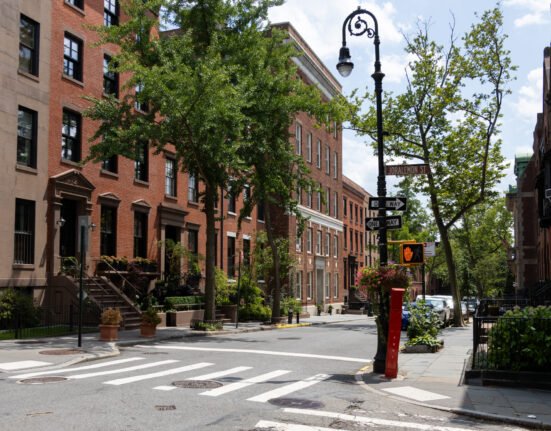While the usage of lead pipes was banned in 1986, the ban didn’t solve the problem of all the pipes that had been laid up until that point.
In order to address this problem, the Environmental Protection Agency has required an inventory be conducted of all service lines. Council Bluffs Water Works has been tackling theirs.
Brian Cady, CEO and general manager of the Water Works, said that during this process, the department was lucky to have very good records kept. One of the biggest challenges the department faces is identifying the lead pipes on property owned by the customer.
“We have really good records on what we own, but not for lines between the curb stop and housing,” Cady said. “Many of these houses we haven’t been in in years.”

Brian Cady, CEO and general manager of Council Bluffs Water Works, holds an example of a lead pipe on Thursday, Aug. 15.
Inventory is the first step in working to replace all lead service lines. Water Works has been working over the years to replace any lead lines they come across when doing maintenance. However, there are still thousands left to replace and that will take both time and money.
People are also reading…
The EPA also found that pipes behind lead pipes would also need to be replaced, requiring cooperation from homeowners. However, many are unwilling to undergo the cost.
“We conducted a survey and, out of the 250 customers we surveyed, 95% didn’t want to participate,” Cady said. “It costs too much.”
Any replacement plan would have to be budgeted for and spaced out over many years. Luckily, Water Works has been given a bit of a head start.
The Iowa State Revolving Fund administered by the Iowa Department of Natural Resources and Iowa Finance Authority, works to provide communities with low-cost funding for safe drinking water and clean waterways projects.

An example of the lead pipes that Council Bluffs Water Works is working to take inventory of on Thursday.
Council Bluffs Water Works has been approved for a $2.5 million loan from the fund. This loan will be given at 0% interest and with the opportunity for 49% forgiveness from the federal government.
“We figured this would cover replacement for about 500 services. With current regulations, we have approximately 7,563 services that may be considered,” Cady said.
Lead most commonly creates contamination due to the corrosion of pipes. Lead in water can lead to long-term health impacts such as damage to liver, kidneys or even the brain.

Corrosion of the inside of a lead pipe is often what can cause lead contamination in water. A lead pipe with minimal corrosion is shown above on Thursday, Aug. 15, 2024.
Council Bluffs has tested below government contamination levels since regulations of lead and copper began. However, no amount of lead is considered safe.
Eventually, nationwide, the goal is to eliminate lead pipes. In the meantime, Water Works will continue doing what it can but will wait for EPA guidance before tackling any large-scale replacement project.







